Although she’s not sure how she was exposed to coronavirus, artist Monique Jackson suspects it might have been during a train journey in March 2020. Here she describes the intense dreams, isolation and debilitating physical symptoms that laid her low – and medics’ disagreement over what had made her so ill.
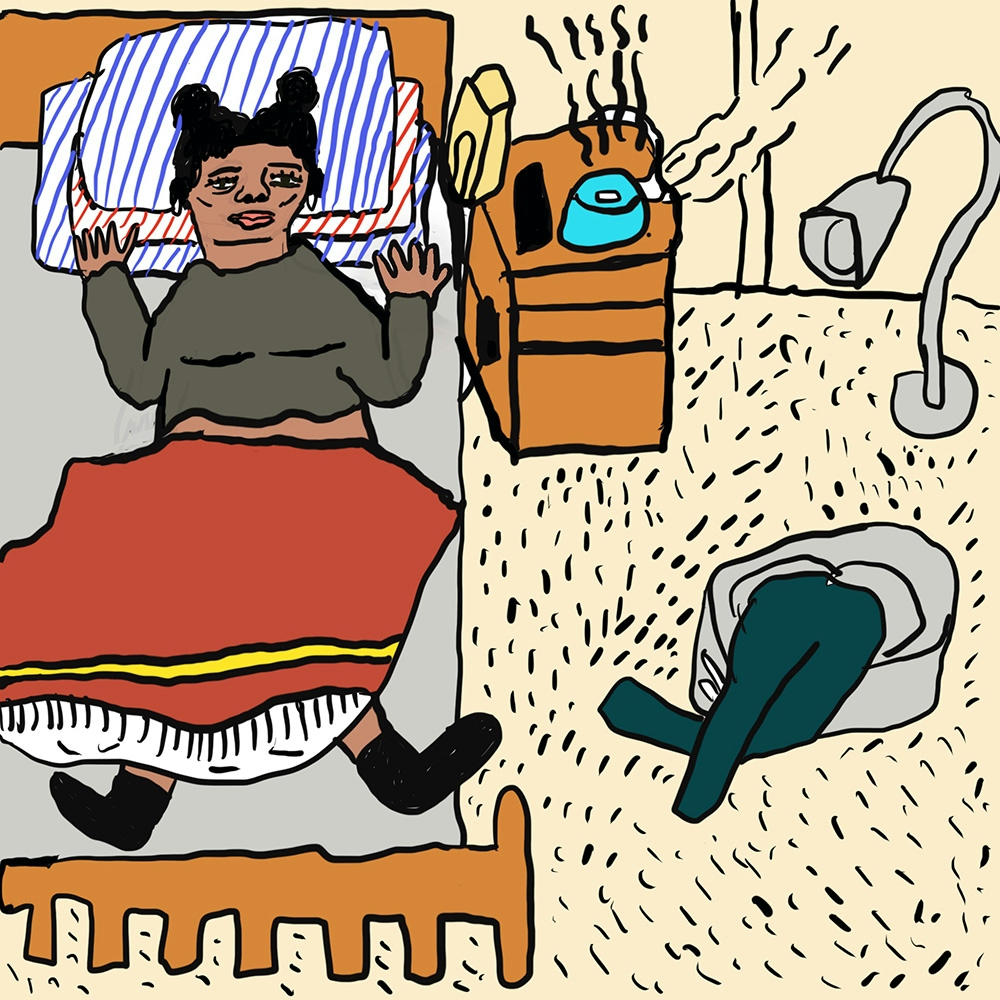
This is a self-portrait in my room from the first few weeks of self-isolating. I could feel my heartbeat pounding like a techno party and noticed I could no longer smell the geranium essential oils in my diffuser. I wanted a test to be sure I was ill with Covid-19, but was told by 111 that none were available.
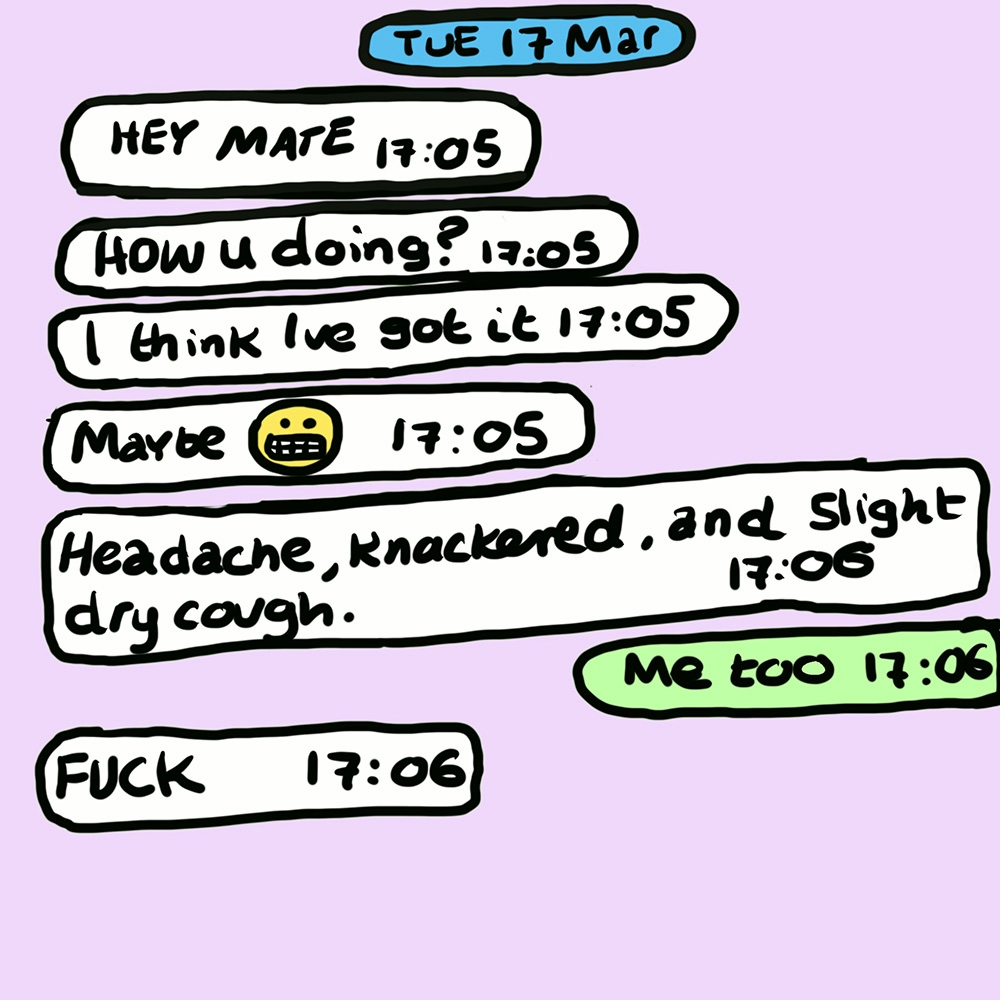
My mate and I got sick together in March 2020. We are not sure exactly when or how we could have been exposed to Covid-19. Retracing our steps, we boarded an Overground train from Rotherhithe to New Cross, and then bought some food and drink from corner shops on a walk into Peckham. This was a week before lockdown; social distancing and PPE were not the norm yet.
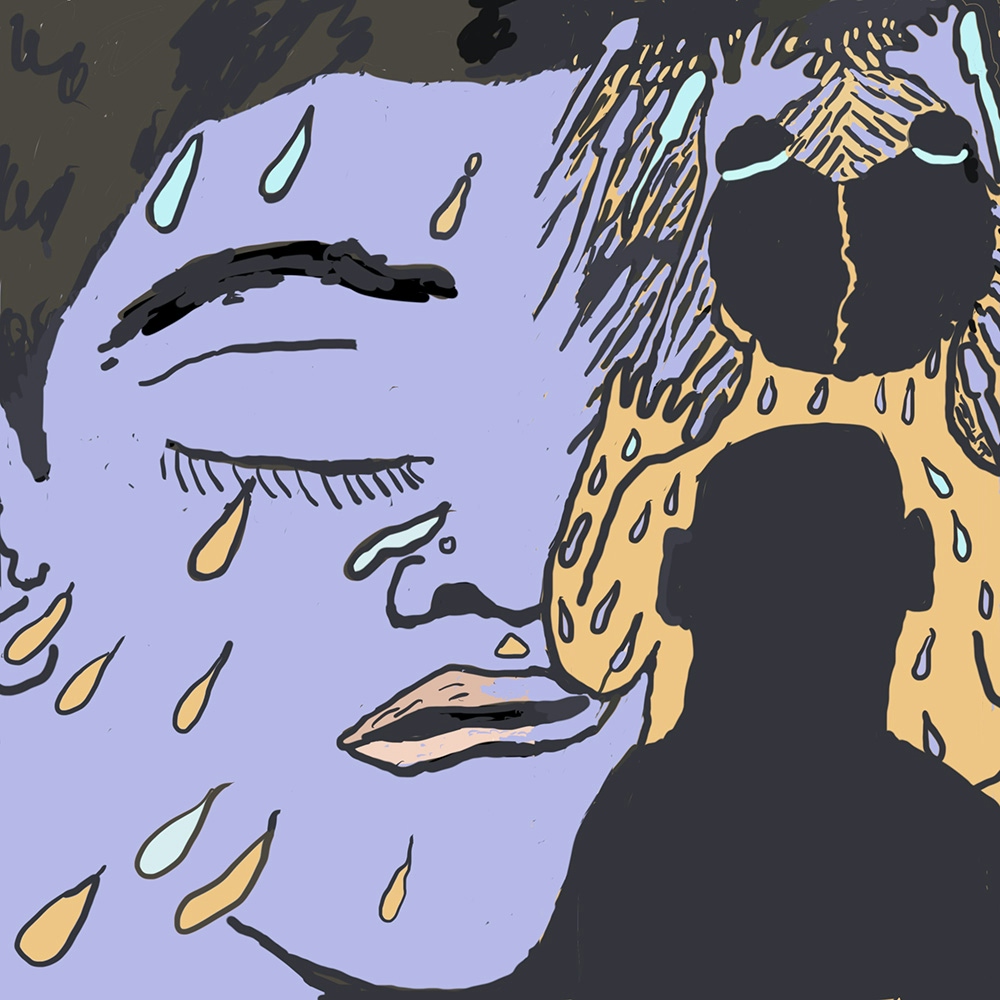
I had several nights of vivid dreams in which I was being chased across a library and through a field by a shadowy figure. The dreams were very detailed in comparison to normal. I awoke drenched in sweat.
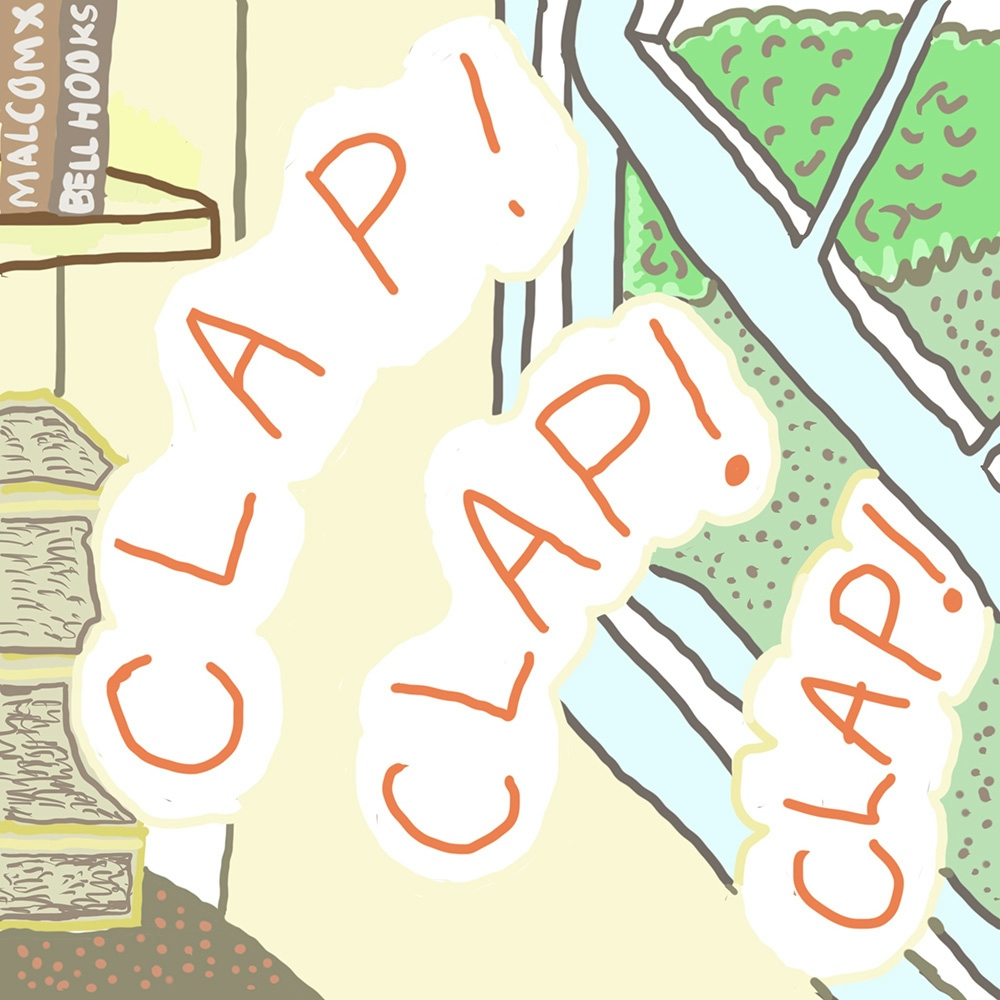
After having breathing problems, I organised a telephone therapy session that started on a Thursday evening. At around 20.00 it was interrupted by this loud wave of noise.
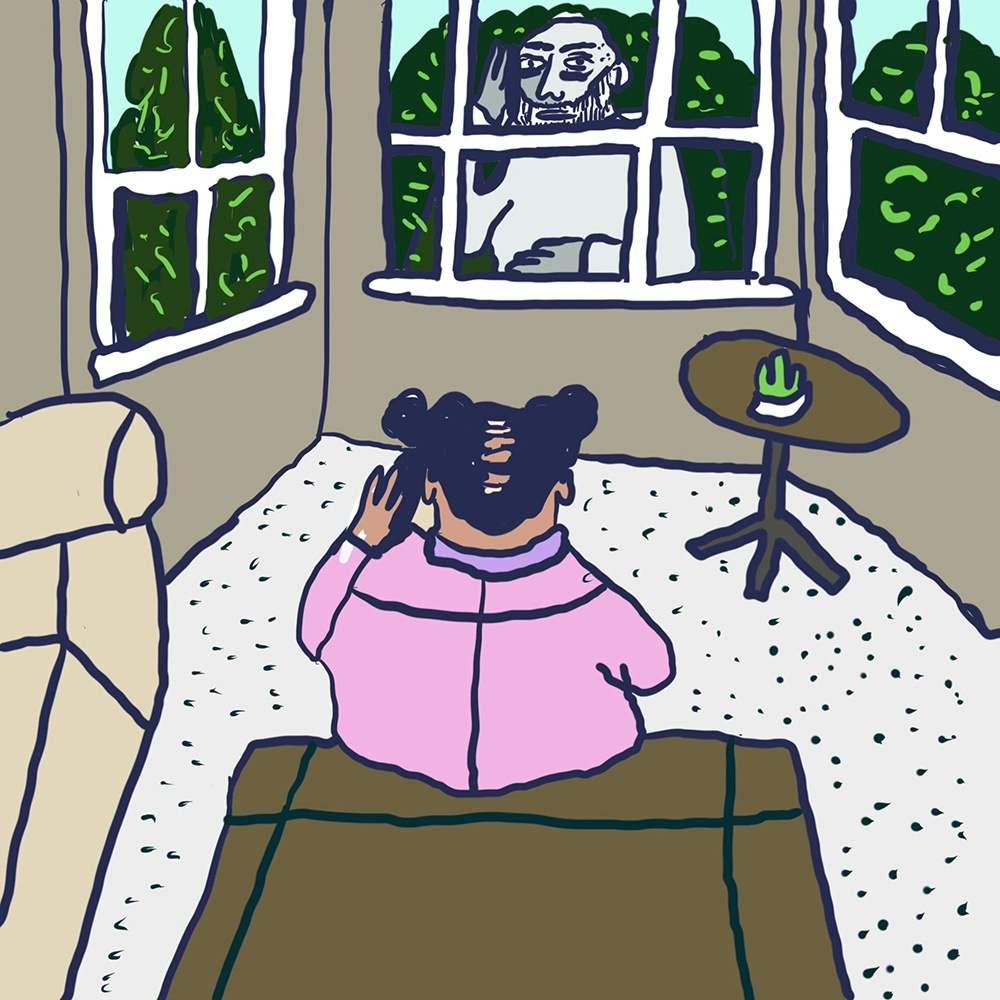
The first four weeks of self-isolating was tough. My friend Billy would come and chat through the front window on the phone. Even though it was unlikely I could pass the illness through the glass, I decided to sit back at the table just in case. I owe my sanity to the friends that visited me during this time – to encourage me to live rather than just survive.
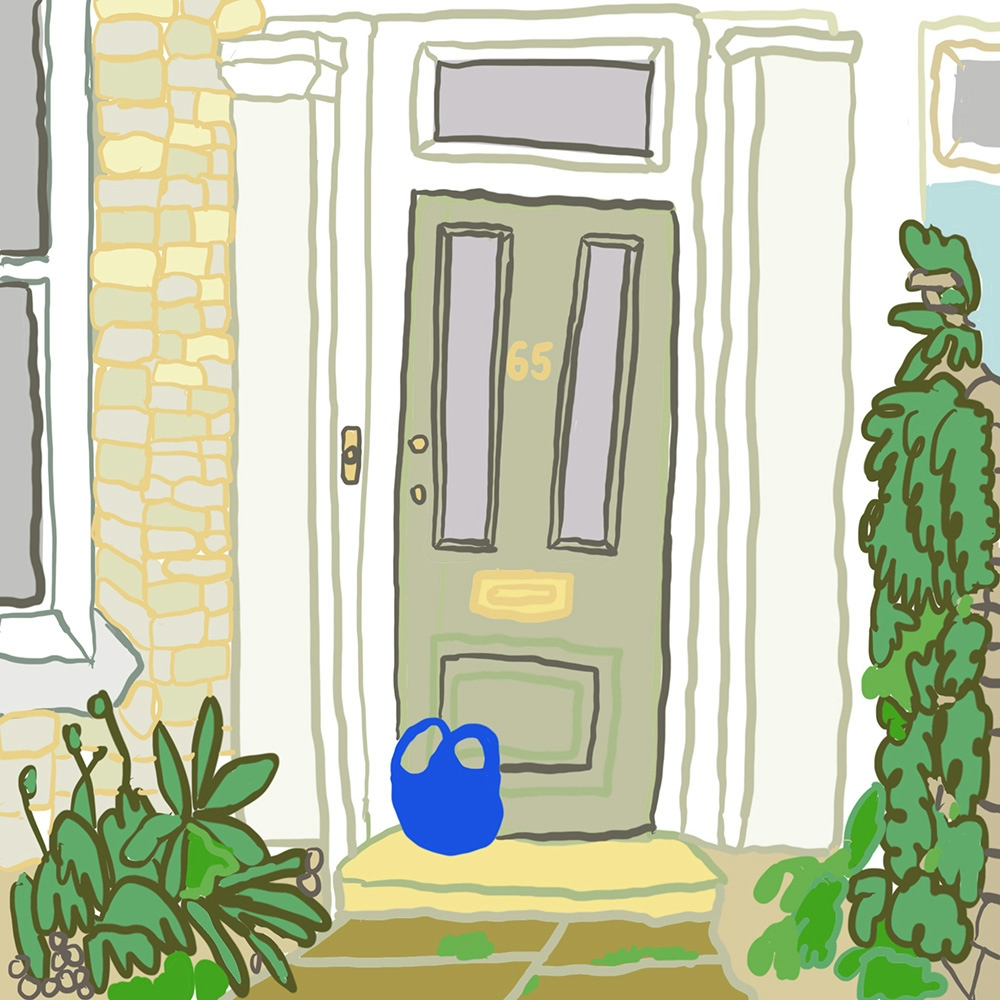
Getting food and meds dropped off to my door was a necessity during a month of isolating. In Hackney there were many local groups organising drop-offs to people shielding or isolating. This has been a lifeline and restored my faith in how as a community we can pull together.
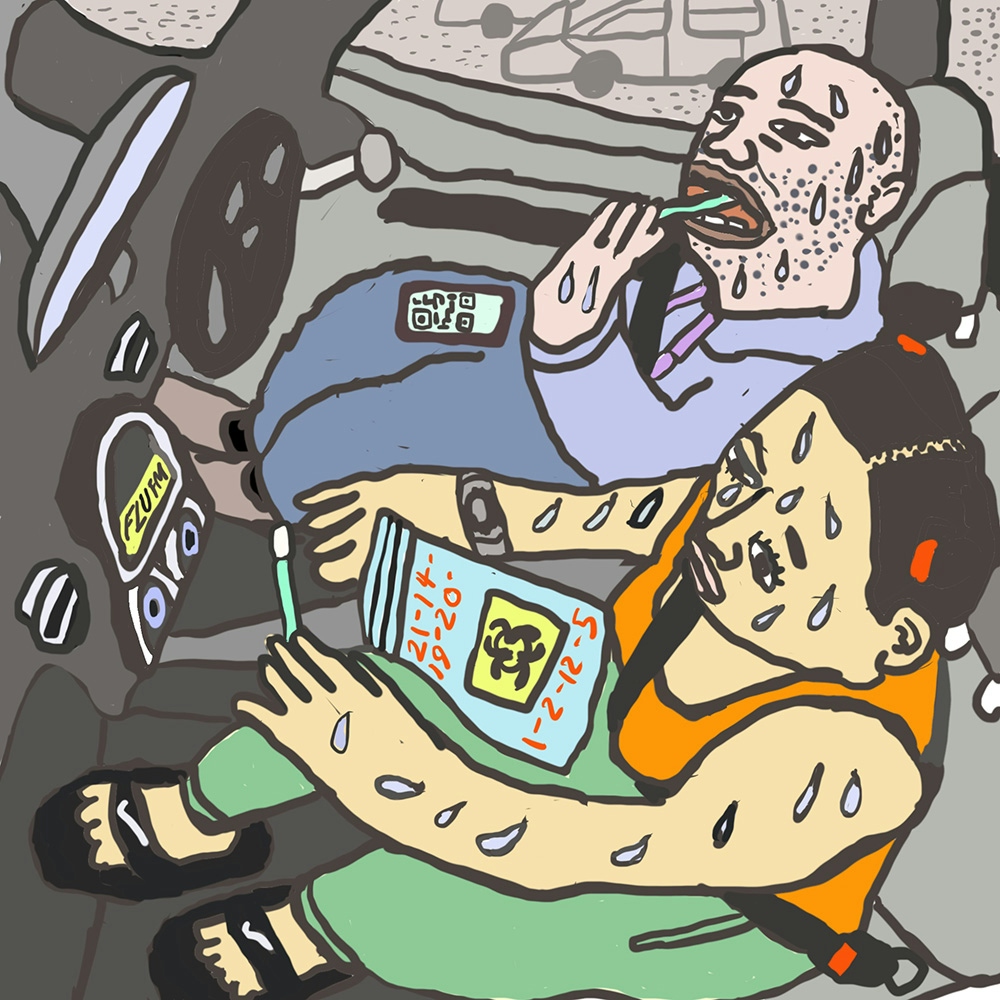
My friend Hratche offered to drive me to a testing centre so I could see if the virus was still in my system, as there was no explanation from doctors as to why I was still getting new symptoms after two months since the suspected infection. Although testing was now available to the public, it was offered via a drive-through, so I relied on my friend for a ride. I thought we’d be met by nurses and doctors. Instead we saw 20-something-year-old army squaddies directing us round the former leisure centre in Mile End. We both ended up having a PCR test. I was so glad to have a smartphone, as it’s required for QR-code scanning to get the test.
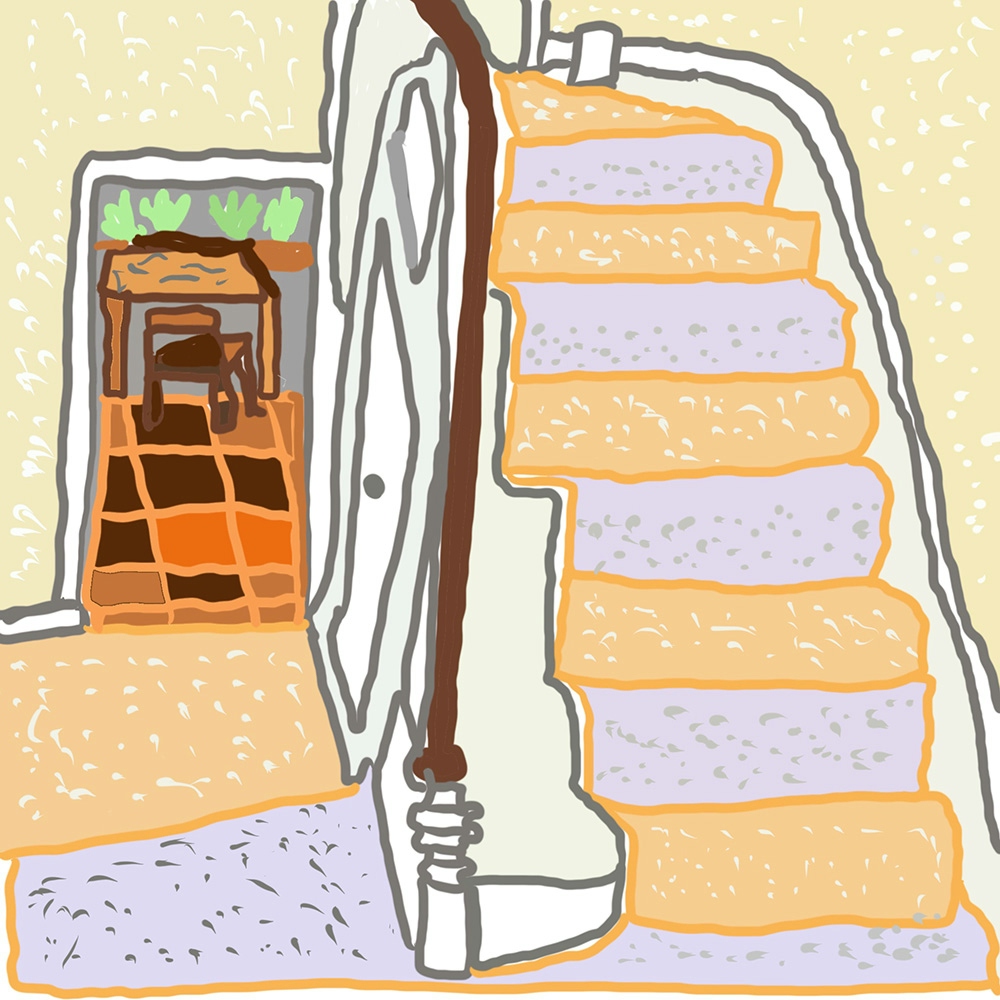
The bedroom and bathroom in my house are upstairs, the kitchen downstairs. It takes me time to recover after walking up the stairs; sometimes I rest halfway. I would try to pretend this wasn’t a thing and run up at the same rate as before. Now I don’t fight it – what’s the point in being in denial?
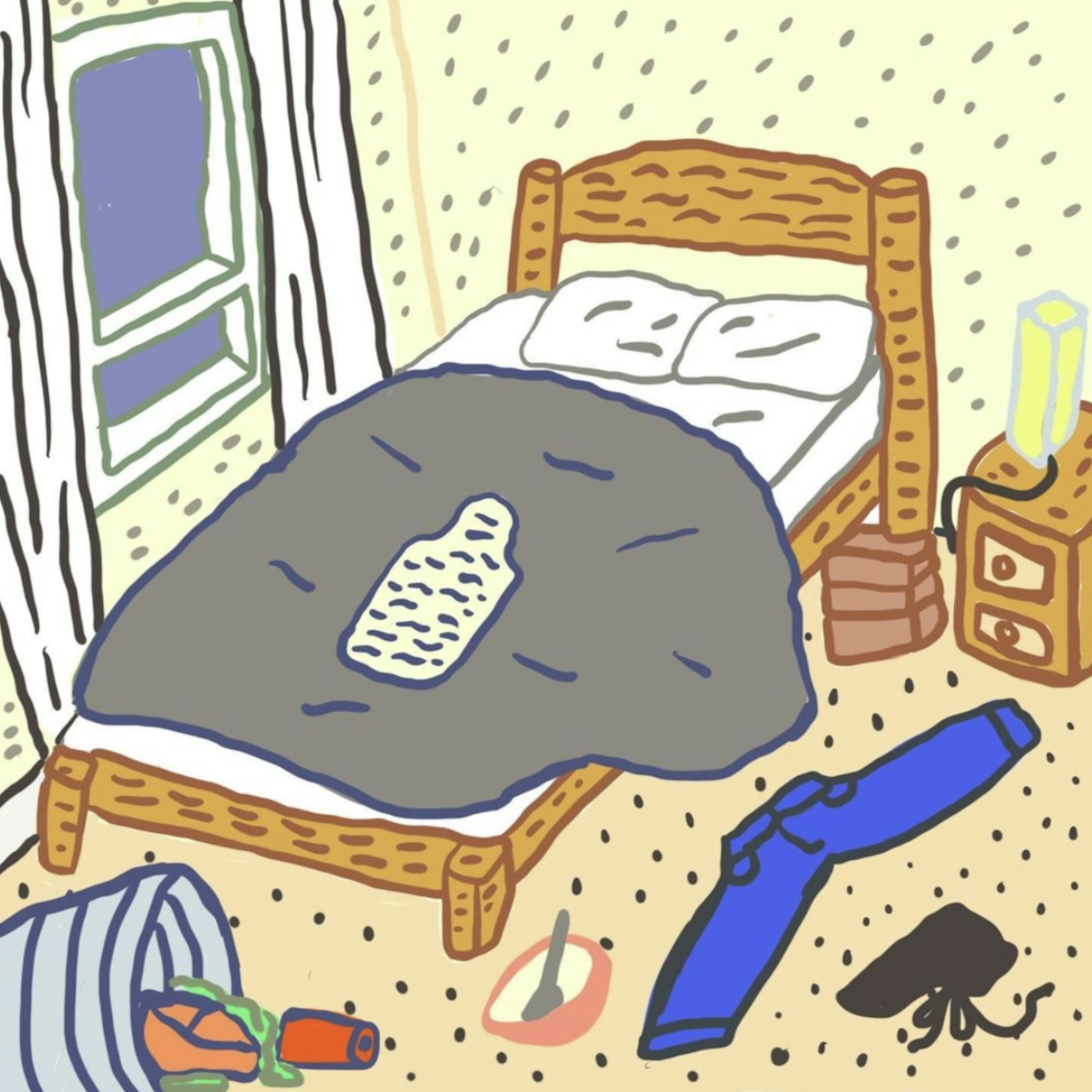
About a month in, I was waking up with gastric burn on my insides, burps and nausea. I had never felt these pains before and read online tips to combat acid reflux: that I should try raising the head of the bed and sleeping at an angle to keep stomach acid down. Another level of strange to add to the experience.
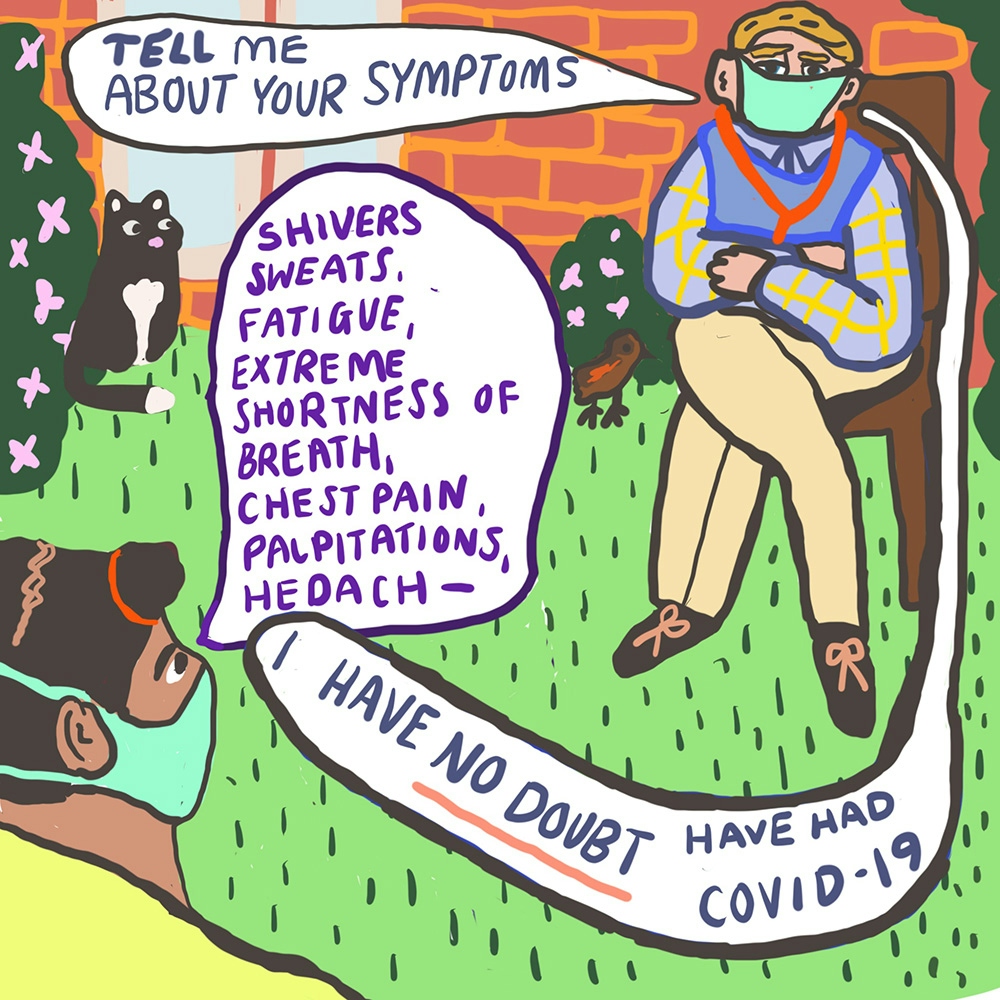
Someone I knew kindly offered to pay for me to have a Covid-19 antibody test. I had no idea what they meant, but agreed straight away. It had been ten weeks since my suspected infection. At the time in the UK, antibody tests were only available to me privately; the one I had was manufactured by Abbott. Talking with a doctor and getting my blood taken in my garden made me feel both lucky and guilty that I was getting this service when loads of other people couldn’t afford it. The doctor listened to me describing my symptoms and said he was confident I was recovering from Covid-19.
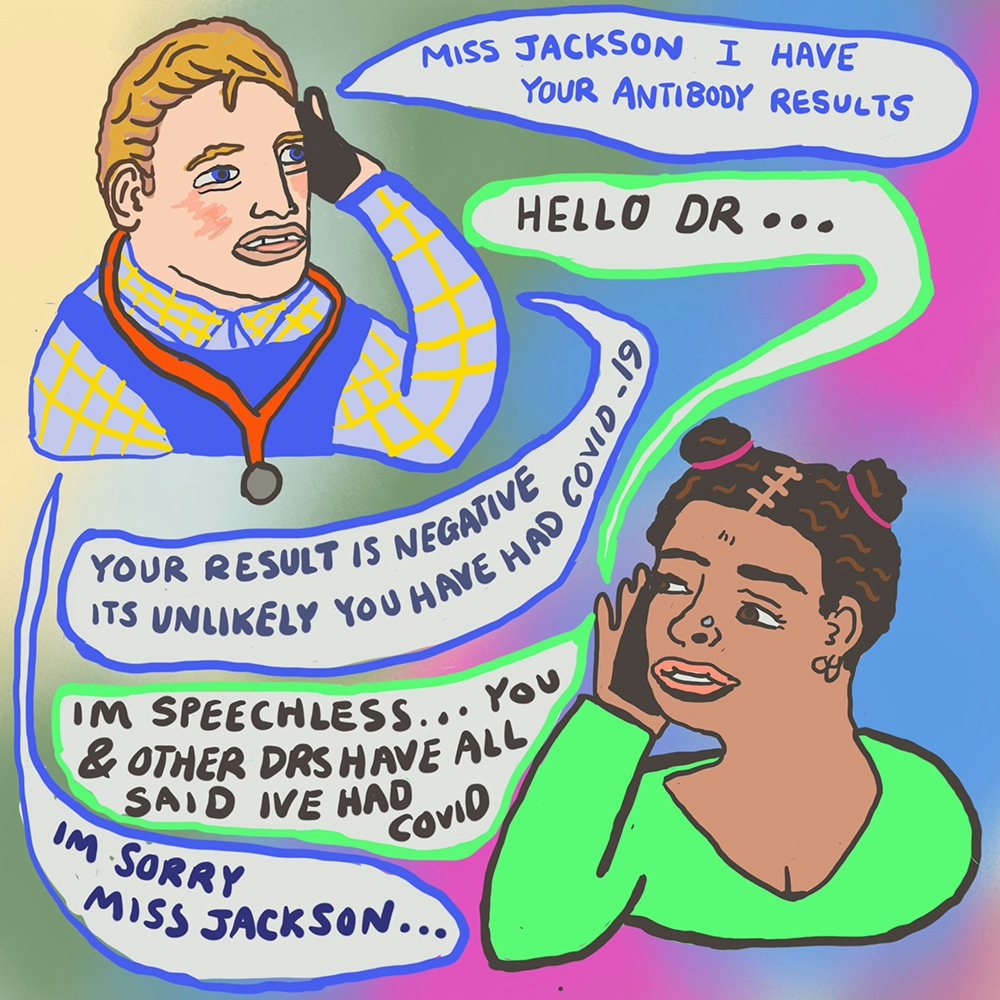
The test results showed that I did not have any antibodies. This was a shock. The private doctor did a U-turn and said he was not sure I had been ill from Covid-19. I later spoke with my NHS doctor, who informed me that apparently lots of patients were getting “false negatives” and that they still believed my symptoms were from the virus.
About the author
Monique Jackson
‘Still Ill: Corona Diary’ is a live visual journal with daily uploads of drawings from Monique Jackson hosted on Instagram. The artwork illustrates Monique’s experience of falling ill from a suspected infection of Covid-19 in March 2020 and battling ongoing symptoms. The project has grown to include Monique speaking internationally in one-on-one ‘Lockdown Lock-in’ interviews on IGTV and Zoom webinars, ‘Covid Culture Talks’, discussing intersectional issues surrounding the pandemic.
